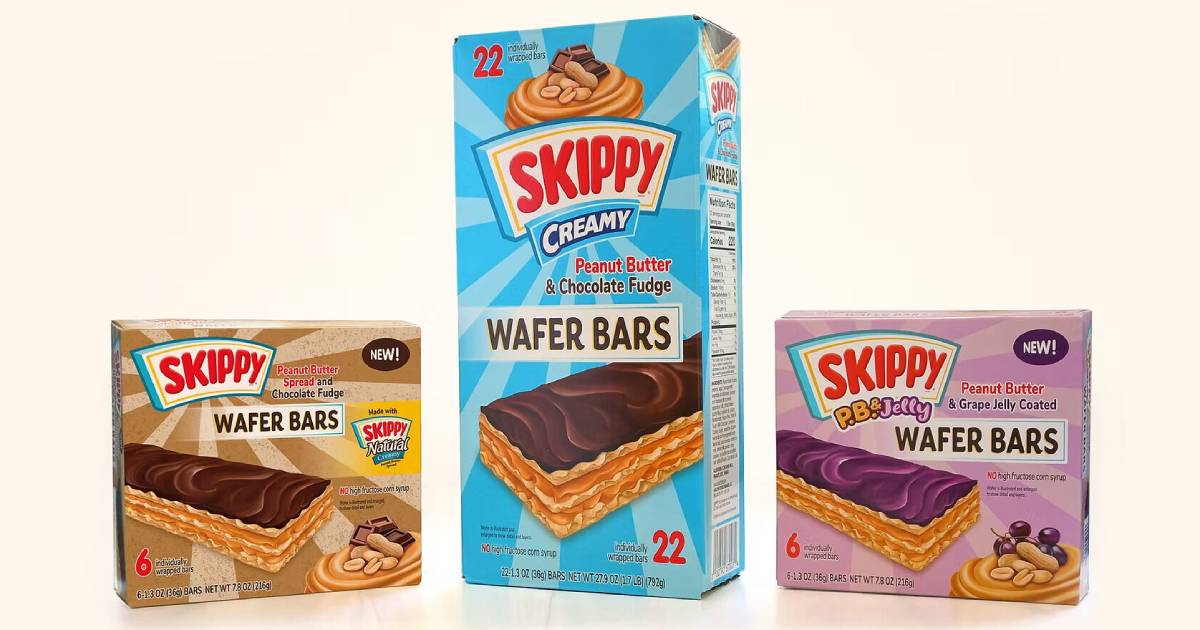Gen Z Develops a Taste for Ingredient Licensing

By Mark Seavy
The mixing of well-known brand ingredients with snack foods and other products is increasingly becoming a successful recipe for licensing.
These partnerships—including the pairing of Mondelez International’s Oreo or J&J Snack Foods’ Icee labels with Gold Medal Products’ popcorn—can attract younger consumers and enable smaller manufacturers to gain shelf space that is largely dominated by national brands.
And while brand ingredients have long been part of the licensing playbook, there has been a surge in demand in recent months fueled by Gen Z consumers’ appetite for unexpected combinations that stretch brands in new directions.
The U.K.’s Sauce Shed recently licensed Atari brand games for hot and barbeque sauces as a follow-up to a pairing with Capcom’s Street Fighter II game a year earlier. Snax-Sational Brands, meanwhile, recently launched 24-ounce bags of PB&J Pop popcorn at Costco combined with J.M. Smucker Co.’s Smucker’s grape and strawberry jelly as well as with JIF peanut butter.
“The Gen Z demographic loves unexpected flavor profiles with something that is new and social media-worthy,” said Michelle McLaughlin, CEO at Brand Activation Consulting, which represents Hormel Foods (Skippy) and Just Born (Peeps) for licensing. “It’s potentially introducing consumers to a new category while also gaining incremental shelf space for a brand.”
These ingredient pairings also come at a time when entertainment IPs involving theatrical releases, which have traditionally attracted younger consumers, has been less reliable, McLaughlin said. This shift in focus creates more room for evergreen food brands to innovate with new flavors or experiment in new categories.
Indeed, Hormel, best known for its canned chili, recently licensed C.H. Guenther & Son for HormelChili seasoning mix packets for original, mild, and white chicken chili flavors. And that was after Hormel licensed General Mills’ Cinnamon Toast Crunch for Hormel Black Label Bacon topped with “cinnadust” seasoning.
And popcorn supplier Gold Medal Products Co., which focuses on the food service business, launched a series of deals with Mondelez International (Oreo), Ferrero (Butterfinger), and J&J Snack Food (Icee), extending a business that also includes private label. The popcorn is sold in kits and, in the case of Oreo, includes pouches of base cake, crème, and cookie pieces packaged with optional popping oil and serving bags. On the private label side, Gold Medal also produces AMC Entertainment’s AMC Theatres Perfectly Popcorn microwavable and ready-to-eat popcorn that has been sold through Kroger.
“These brands are everywhere in the world and in everyone’s pantry. Growth is tough, so to extend the brand they have to think of other means,” said Joseph Macaluso, VP of Sales for the U.S. and Canada at Gold Medal.
In a similar effort to expand their reach, many private label suppliers have also moved into licensing to grow their businesses. Among these are T. Marzetti (sauces inspired by Chik-fil-A and Subway) as well as Golden West Food Group’s offerings with Hershey’s (frozen fruit snacks), chef Guy Fieri (cheesy chicken enchilada bowl), and Jack Daniel’s (barbeque meats).
“If you have a brand that has broad appeal and you match it with a good quality product, it gives you an edge,” said Oliver Reynolds, Managing Director and Co-Founder of Shed Sauce, which launched its Street Fighter II sauce through 130 HMV stores in the U.K. “If we just launched a [generic] hot sauce fighting brand product, would people have picked it up? Possibly, at certain hot sauce festivals and food shows. But because it has a brand they were emotionally connected to, they gave it a try because there was an element of trust.”




